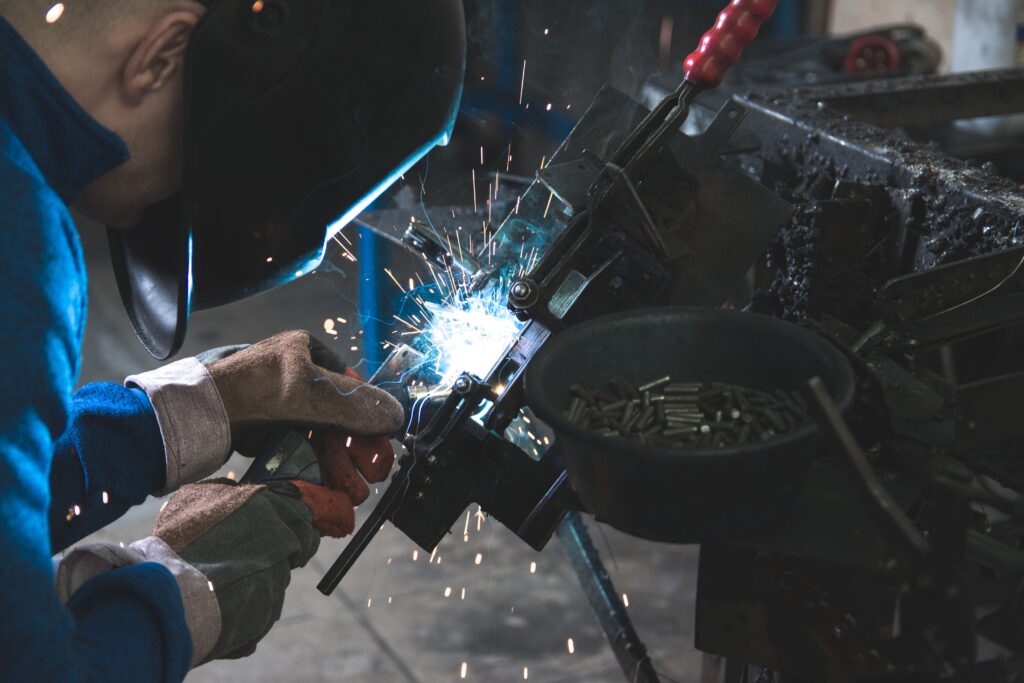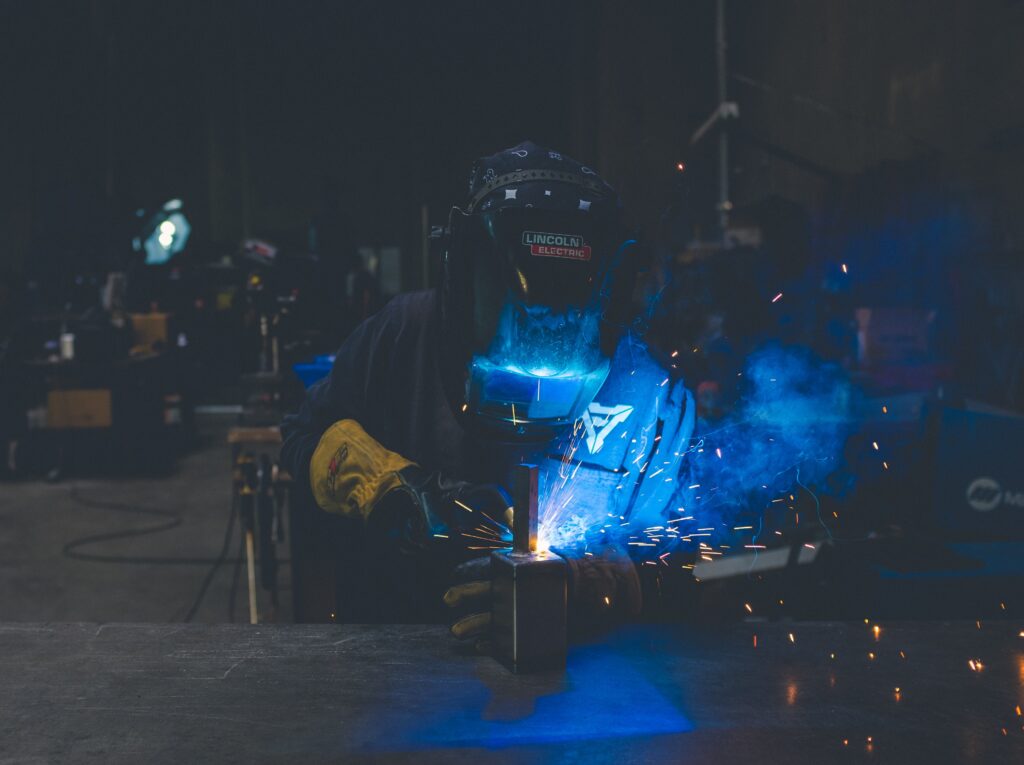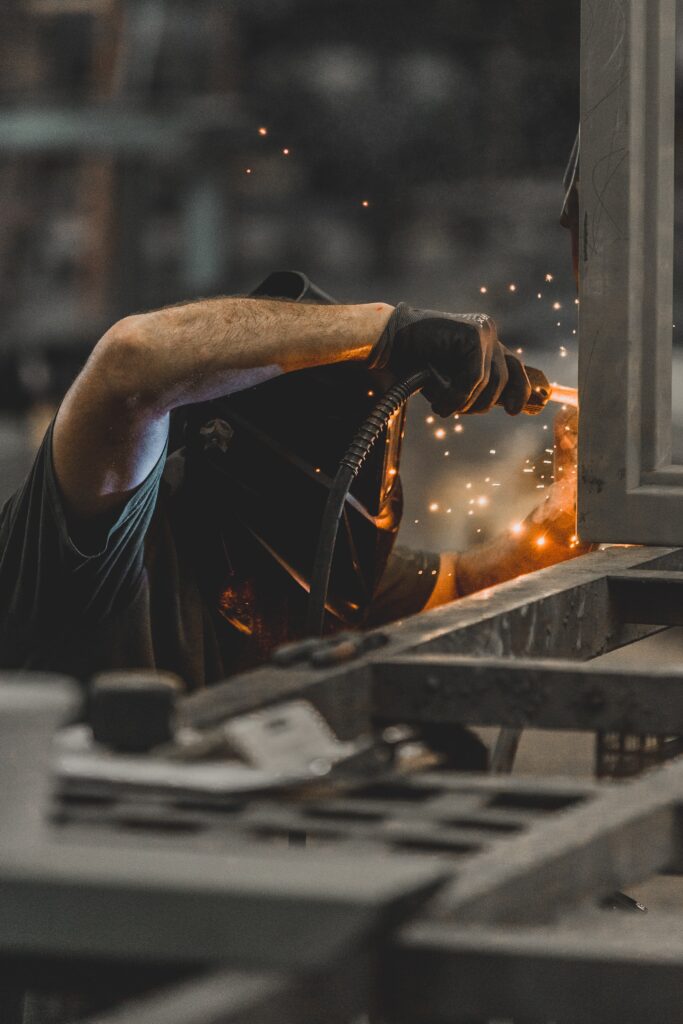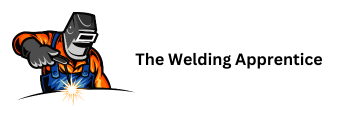You’ve mastered the craft of welding and are eager to push the boundaries of your career. Now, you might find yourself wondering, “What is the highest paid welding job?” Let’s set on a journey of discovery together to unlock this much-needed information and illuminate your career path, taking us through the highest peaks of your potential. From underwater welding to pipeline welding, we’ll explore the astonishing salaries these niche welding jobs command, and how you could get into these elite ranks. Brace yourself to be amazed as we shed light on this fascinating topic.

Understanding the Basics of Welding
Welding, a skill that combines scientific understanding and hands-on practicality, is the method used to join pieces of metal together. This highly specialized trade requires precision, diligence and an in-depth knowledge of materials and techniques. Though it consists of working in many different environments, ranging from underwater to space, it is a highly rewarding career.
Different Types of Welding
There are several types of welding processes that you might consider when starting your career in this industry. The common types include MIG (Metal Inert Gas), TIG (Tungsten Inert Gas), Stick Welding, and Flux-Cored Welding. Each of these processes requires different tools, techniques, and materials and has distinct uses and application areas.
Training and Certifications Necessary for Welding
Becoming a certified welder requires that you participate in a qualified welding school or program. Most welding programs issue a certificate upon completion, which helps you when seeking employment. Apart from certificates from welding schools, many employers may also require certifications from the American Welding Society. These certifications validate your skill range and act as a testament to your competence.
The Role of a Professional Welder
A professional welder’s role primarily involves joining metals together utilizing heat produced by different welding techniques. Welders must read blueprints, sketches, or work orders to comprehend the specific requirements of a task, maintain equipment, and ensure they are following all safety protocols. Skilled welders are sought after in numerous industries, including construction, automotive, shipbuilding, and aerospace.
Factors Influencing Welder’s Salary
Geographic Location
Like many other occupations, a welder’s salary often depends on geographical location. Normally, regions with a high cost of living pay more as compared to regions with a lower cost of living. In the United States, organizations in places like Alaska and Hawaii often pay welders significantly higher salaries than companies in other states.
Level of Experience
A welder’s experience impacts their earnings significantly. Entry-level or junior welders usually earn less, but as they gain skills and years of experience, their income usually increases. Senior welders with more than a decade of experience in the industry are expected to earn a higher salary compared to their less experienced counterparts.
Specializations and Skills
Welders who have honed specific skills or gained knowledge in a particular area of welding often achieve higher earnings. Skills like understanding intricate welding techniques, ability to work with a variety of materials, or even managerial talents can enhance a welder’s income.
Industry
The industry in which a welder works also plays a crucial role in determining their salary. Industries with higher risks or precision requirements like underwater welding or aerospace welding usually pay significantly more as compared to other sectors like the construction industry.

Overview of Welding Jobs
Entry-Level Welding Jobs
Starting your welding career usually involves working as a junior welder or welding assistant, where you’ll perform basic duties while learning from more experienced professionals. Such roles provide a great platform to prove your abilities, gain practical experience, and learn about advanced welding techniques.
Middle-Level Welding Jobs
With experience and improved skills, you might progress to more challenging welding jobs like a welding inspector or a supervisor. Your responsibilities may include managing a team, ensuring quality control, and overseeing the safety measures.
Senior-Level Welding Jobs
These positions usually require a high level of expertise reflecting many years of experience in the industry. In senior-level positions such as welding engineer or manager, your role would primarily be focused on the design and development of new welding techniques, ensuring efficient workflow, and handling any technical complexities.
Underwater Welder
Job Description of an Underwater Welder
An underwater welder specializes in performing welding operations in submerged environments. The job involves repairing ships, offshore oil platforms, pipelines and more. Not only does it require advanced welding skills, but you also need commercial diving skills, making it a unique and challenging role.
Risks and Challenges Faced by Underwater Welders
underwater welding entails certain risks and challenges such as the possibility of electric shock, decompression sickness, underwater explosions and even encounters with marine creatures. Meeting these challenges requires extensive training, physical and mental preparedness, and rigorous safety measures.
Salary Range of Underwater Welders
Due to the inherent risks and complex skill set required, underwater welders are often rewarded with high salaries. An underwater welder’s salary can vary greatly based on location, the complexity of tasks, employer type, and level of experience.

Pipeline Welder
Job Description of a Pipeline Welder
A pipeline welder is responsible for joining and repairing pipes in various industries like oil, gas, and water distribution. Their work involves dealing with high-pressure pipes, requiring precision and careful handling.
The Dangers Associated with Pipeline Welding
Pipeline welding can be risky due to the high-pressure environments and hazardous materials often involved. Potential risks include explosions, extreme temperatures, and exposure to toxins requiring stringent safety measures.
Salary Range of Pipeline Welders
Given that pipeline welding is a highly specialized field, welders can expect a decent remuneration for their services. However, their salaries can vary depending on variables like geographical location, years of experience, and the specific industry they work in.
Industrial Pipe Welder
Job Description of an Industrial Pipe Welder
Industrial pipe welders focus on welding pipes in industries like power generation, manufacturing, and chemical production. Work often involves precise welding of pipes that carry steam, chemicals, fuel, or other materials.
Working Conditions of Industrial Pipe Welders
Industrial pipe welding often involves working in harsh environments with exposure to high temperatures and potentially hazardous materials. Welders in this field must adhere to stringent safety standards and wear appropriate protective gear.
Salary Range of Industrial Pipe Welders
Salaries for industrial pipe welders can be quite competitive due to the high demand for their specialized skill set across various industrial sectors. Like other areas in welding, locations, experience level, and type of industry influence their income.
Nuclear Industry Welder
Job Description of a Nuclear Industry Welder
Nuclear industry welders primarily work in nuclear power plants where they join and repair pipes, structures, and machinery associated with nuclear energy production.
Safety Measures in Nuclear Welding
Due to the high risk associated with nuclear materials, safety is a top priority for nuclear industry welders. They must strictly follow safety protocols and use specialized equipment to protect against radiation exposure.
Salary Range of Nuclear Industry Welders
Nuclear industry welders are often well-compensated for their specialized skills and assumption of risk. Their salaries depend on location, years of experience, and the specific requirements of their job.
Military Support Welder
Job Description of a Military Support Welder
Military support welders work in the armed forces, performing a wide range of welding tasks to maintain and repair military equipment, vehicles, and infrastructure.
Role of Welding in Military Operations
Welding plays a vital role in military operations, from ensuring the integrity of tanks and armored vehicles to maintaining infrastructure at military bases. The work of military support welders is critical for the smooth operation of defense activities.
Salary Range of Military Support Welders
Welders in the military receive salaries based on their rank and years of service. In addition to their base salary, they often receive benefits such as housing allowances, health care, and retirement support.
Aerospace Welder
Job Description of an Aerospace Welder
Aerospace welders work in the aviation and space industry, welding parts for aircrafts, satellites, and space vehicles. This highly specialized field demands precision and the ability to work with different materials like aluminum, titanium, and magnesium.
Complexity of Welding Job in the Aerospace Industry
The aerospace industry mandates high-quality and precise welding, as the slightest error can have catastrophic results. This makes aerospace welding one of the most challenging and complex fields in the welding profession.
Salary Range of Aerospace Welders
The complexity, precision, and responsibility of aerospace welding are often reflected in the salaries of the workers. Aerospace welders typically earn more than their counterparts in less specialized fields.
The Highest Paid Welding Job
Comparing the Salaries of Different Welding Jobs
Now, coming back to the question that we initiated this comprehensive article with – What is the highest-paid welding job? The answer can vary as different welding fields can offer competitive salaries based on experience, job scope, and criticality.
Factors Contributing to the High Pay of This Job
Jobs like underwater welding, aerospace welding, and nuclear welding often stand out when it comes to high pay. These roles require specialized skills, entail significant risks and require work in extreme conditions.
Why This Job Pays More Than Others
The high pay in these specialized welding jobs can be attributed to the expertise required, the associated risks and the need for strict quality control. Working in challenging environments or dealing with volatile materials often fetches a higher pay than regular welding jobs.
In conclusion, it’s vital for you to research and consider all aspects, including the role, industry, risks, and potential income before embarking on a welding career path. Whether it’s underwater welding or working as an aerospace welder, the welding industry offers many high-paying opportunities. With the right training, dedication, and continual skill development, welding can indeed become a profitable and rewarding career.
